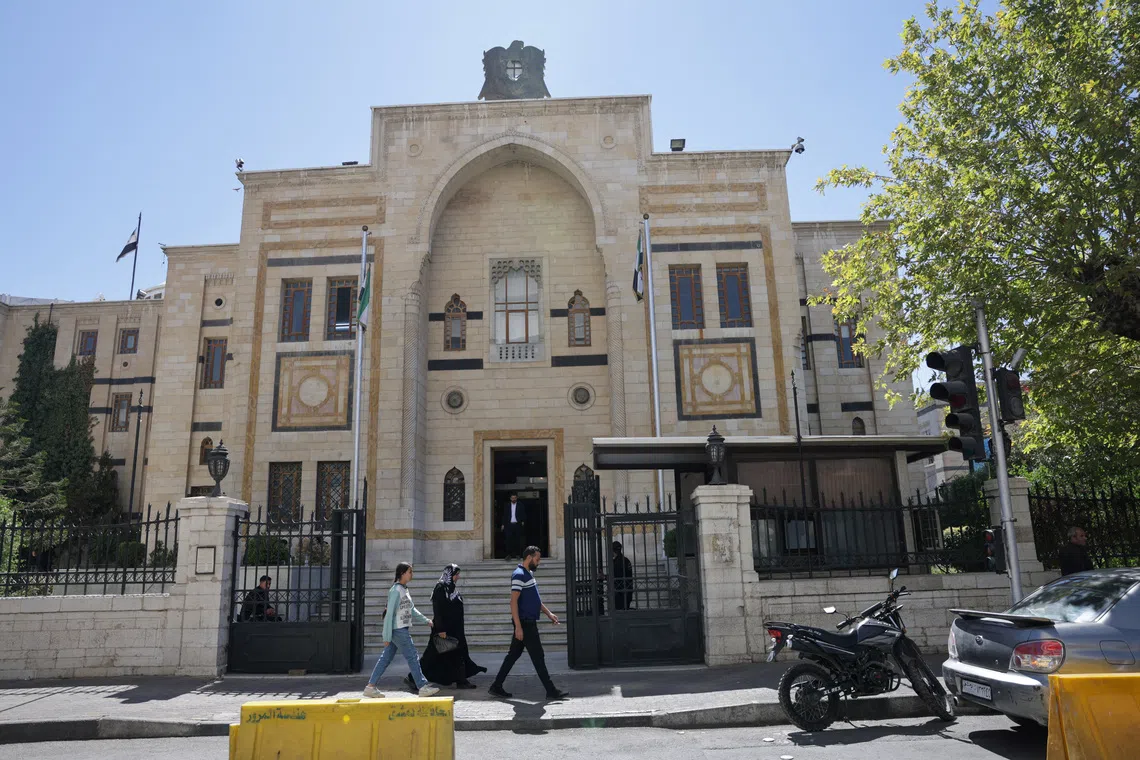Syria to establish first post-Assad Parliament amid political inclusivity concerns
Sign up now: Get ST's newsletters delivered to your inbox

The election is an indirect one, with regional electoral colleges made up of a combined 6,000 electors set to pick two-thirds of the 210-seat Parliament.
PHOTO: REUTERS
Follow topic:
DAMASCUS - Syria will hold an indirect vote on Oct 5 to establish its first Parliament since former president Bashar al-Assad was ousted, a key step in the transition from his rule but one that has stirred concerns about political inclusivity under the country’s new leaders.
The process is unfolding as President Ahmed al-Sharaa tries to consolidate his hold over a nation fractured by 14 years of war and recent bouts of sectarian violence that have fuelled suspicion of his Islamist-led administration among minorities.
The election is an indirect one, with regional electoral colleges made up of a combined 6,000 electors set to pick two-thirds of the 210-seat Parliament. A committee appointed by Mr Sharaa has approved 1,570 candidates.
Mr Sharaa, a former Al-Qaeda fighter whose rebel forces toppled Mr Assad in December,
The authorities say they resorted to this system rather than universal suffrage due to a lack of reliable population data and following the displacement of millions of Syrians by the war.
Citing security and political reasons, they also decided to postpone the process in the north-east, held by the Kurdish-led authorities, and in the province of Sweida, largely held by Druze armed groups. That means 19 seats in Parliament are expected to be left empty.
Inclusivity concerns
Critics have slammed those moves, saying a partial and indirect vote is unrepresentative and too centrally managed.
The eastern city of Deir al-Zor is a stark example. The winding Euphrates river divides it in two: the government-held western half, where a vote will be held, and the Kurdish-controlled east with no election.
“It does not satisfy me that there are elections there, and here there aren’t. We want something that serves the whole region. Syria is united,” said Mr Hassan Mohamed Dalli, a resident of the eastern bank.
Critics say the process also fails to guarantee the participation of women or religious and ethnic minorities.
Women make up at least 20 per cent of candidates in just a quarter of electoral districts. But in half of the districts, 10 per cent or fewer of the candidates are women. No quotas have been set for women or minority lawmakers.
Women fared no better under the Assad family’s rule. They also had no quotas in Parliament then, and female lawmakers made up only 6 per cent to 13 per cent of the legislature from 1981 until Mr Assad was toppled, according to the Inter-Parliamentary Union, which collects data on national Parliaments worldwide.
The Parliament was slightly larger under Mr Assad, with 250 seats, of which two-thirds were reserved for members of his Baath party. The last election, held in July 2024, were labelled a farce by Mr Assad’s opponents.
Analysts say the current winner-takes-all voting system could produce a result dominated by men from Syria’s Sunni Muslim majority.
This may put the onus on Mr Sharaa, who has repeatedly promised inclusivity, to use his third to appoint female lawmakers and members of minority groups. But observers worry that he could also use appointees to centralise power.
“If the President selects individuals subject to his influence, he could issue laws through decrees without effective challenge,” Dr Haid Haid, a senior fellow at the Arab Reform Initiative, wrote in an analysis of the process.
“This moment could either legitimise a fragile transition or deepen longstanding public cynicism.” REUTERS

